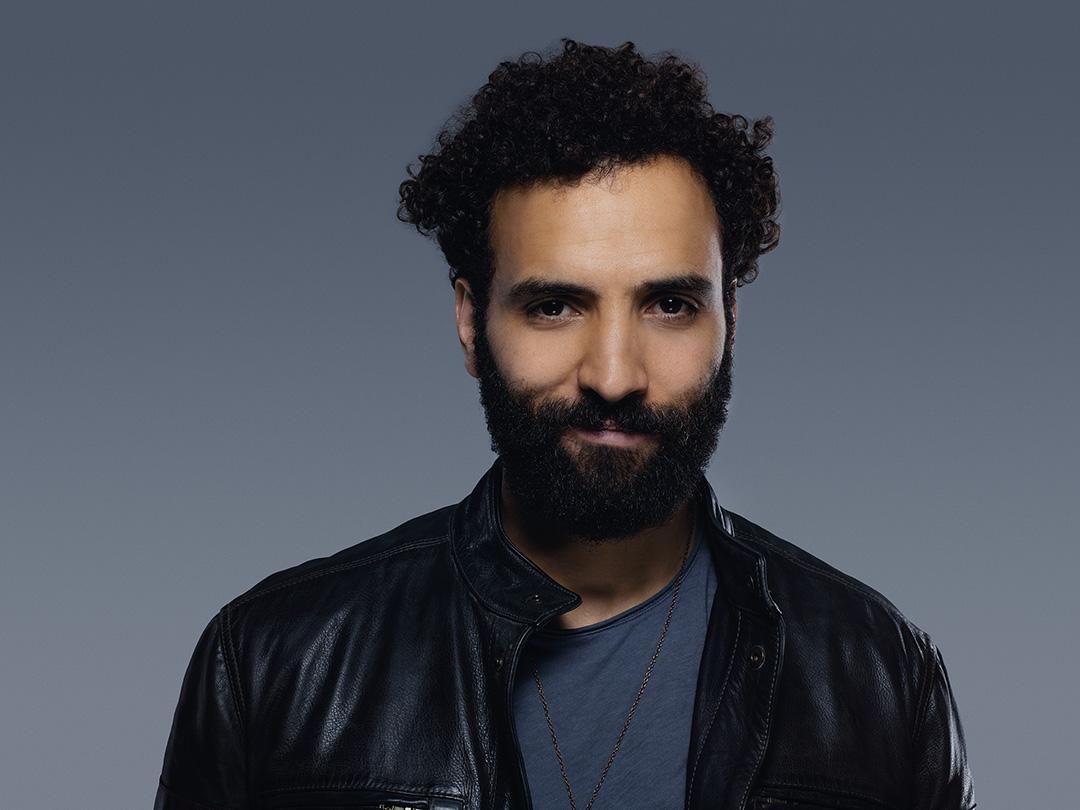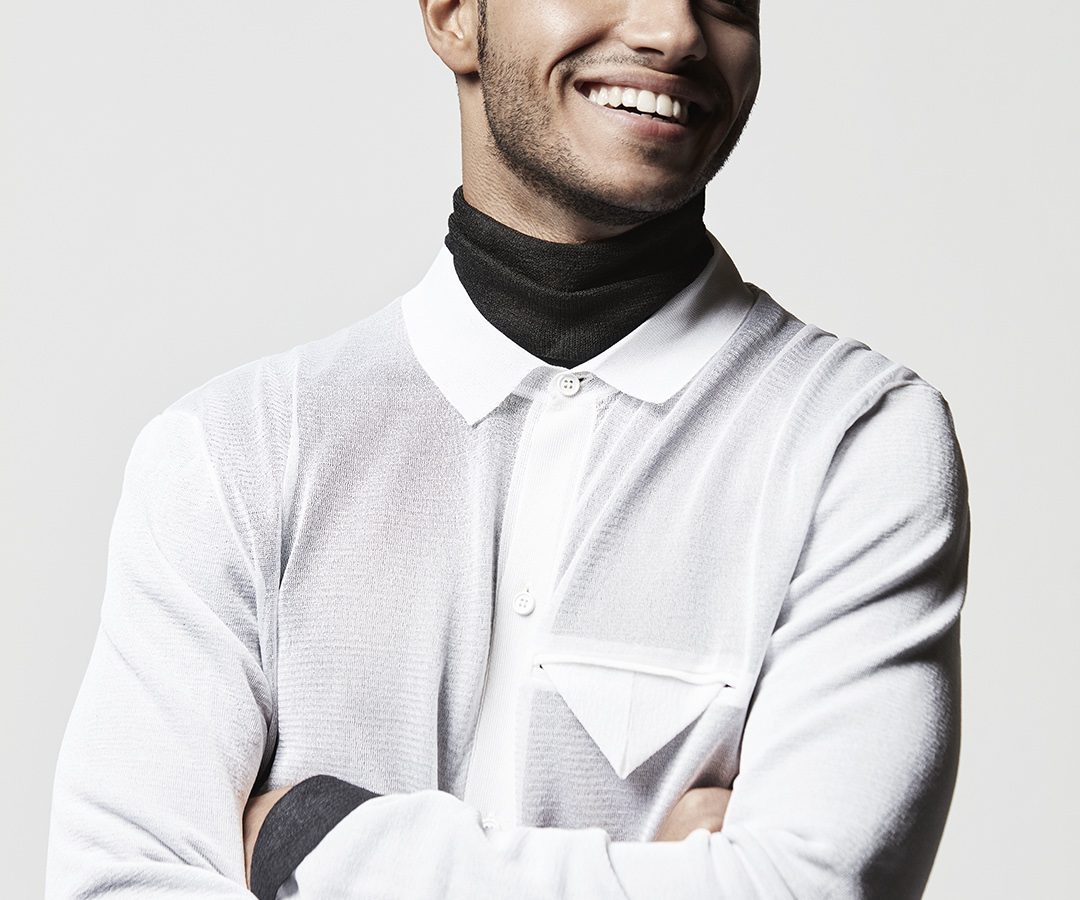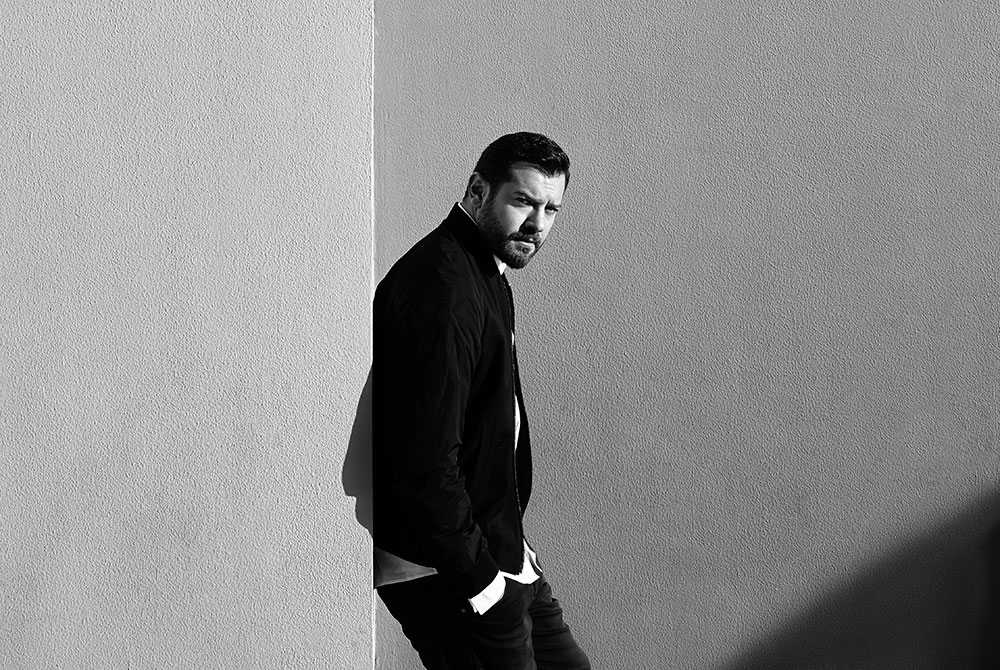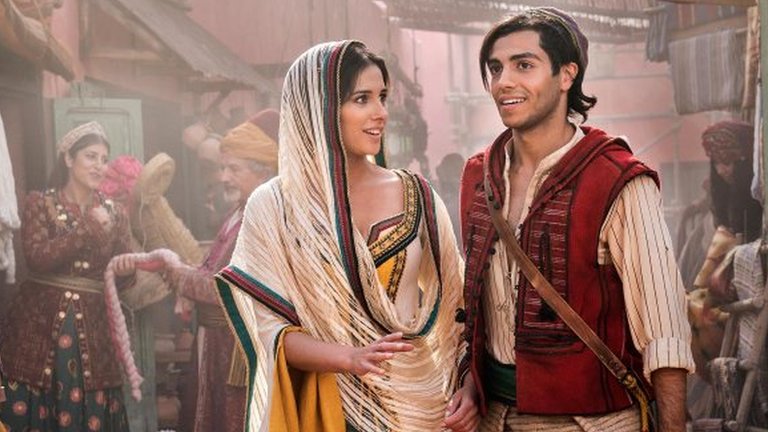Last seen in as the antagonist in Disney’s Aladdin remake, Dutch-Tunisian actor Marwan Kenzari is back this month as an immortal ass-kicking mercenary in Netflix’s all-action film, The Old Guard
Esquire Middle East caught up with the actor on the phone(!) from his house in The Netherlands, to talk about playing an ruthless mercenary who cannot die in the new Netflix film.
***
ESQUIRE: Hey Marwan, How are you? We’ve done so many Zoom calls this month that it is refreshing to just chat to someone on the phone! It seems almost antiquated.
Marwan Kenzari: I know what you mean! I am good. Just at home right now staying cautious and socially distancing.
ESQ: Have you been living in your slacks or have you continued to get dressed?
MK: [Laughs] I’m not the kind of guy to do video meetings in my pajamas, if that’s what you’re asking! But sure, when I’m at home I tend to wear something comfy.
ESQ: So, congratulations on the The Old Guard. Have you seen it yet?
MK: Yeah, I saw the film a couple of weeks ago and I loved it. I was very happy with a lot of good character moments, and I thought the pace of the film was good. It was a very authentic adaptation of the graphic novel.
ESQ: Had you read the graphic novel before you took the role?
MK: I read the script for the film first, and then straight after that I read the graphic novel. I am not too familiar with graphic novels, so this was a first for me.
ESQ: In a nutshell, the film is about a team of elite mercenaries led by Charlize Theron, all of who have inability to die. It’s a bit of a stretch from your normal life, isn’t it?
MK: Exactly! I’ve always loved action films, especially ones that are smart and have intricate character nuisances. I was really drawn to the idea that the characters in this group couldn’t die and, as fun as that sounds, there is actually a deep sadness to being hundreds of years old, because ultimately you out live everyone you have ever loved.
ESQ: How important was that when you were fleshing out your character, Joe, in the film?
MK: To be honest, I have always been fascinated by life and death—whether that is in my personal life or something I find in literature or music. I feel that on a daily level we are confronted with the fact that we exist, and at the same time how very thin that thread is—especially in the time of a global pandemic. I was talking once with one of my heroes, who was a 91-year-old poet, and I asked him about his life. He kept saying that, even at the age of 90, how much he missed his father. He said that the hardest thing about being that age was that he had lost so many people around him. That idea really stuck with me for this story. Even though these characters are different, the drama that they feel is real. While they are trying to do good, they have all seen so many people die—including their children and their children’s children.
ESQ: That is quite a lonely mindset…
MK: If you love someone, and decide to be with that someone then you ultimately know that there will be a point that one of you will eventually die— that is a very powerful and complicated element of life. If you don’t ever love anyone in life, then you will never have to be afraid of losing them—but that does seem like a pretty sad conclusion to me. Because of that, there is a lot of heart in the film’s characters, and a lot of interesting feelings to play around with… but at the same time, there is a lot of fighting and action!
ESQ: Is it secretly on every actor’s bucket list to be cast in an action film and have the studio dedicate resources to helping you get into shape?
MK: It certainly helps! For The Old Guard we had a fantastic group of trainers and fight coordinators. We spent weeks learning on sword fighting techniques and workshops teaching us Special Forces ops training. Those were really fun to do because you learn a lot of, shall we say, ‘interesting’ skills. I think that physical training is a hugely important element in an actor’s craft, whether you are playing someone physical or not. When I was young my father was quite strict in encouraging me to do sports. I did karate and football but, back then I would have days when I wished I could have just fooled around and not had to take it too seriously. It eventually paid off for me when in 2011 I was cast in as the lead a kickboxing movie [Wolf], and it became easy for me to tap into that world because I already had the techniques in my body.
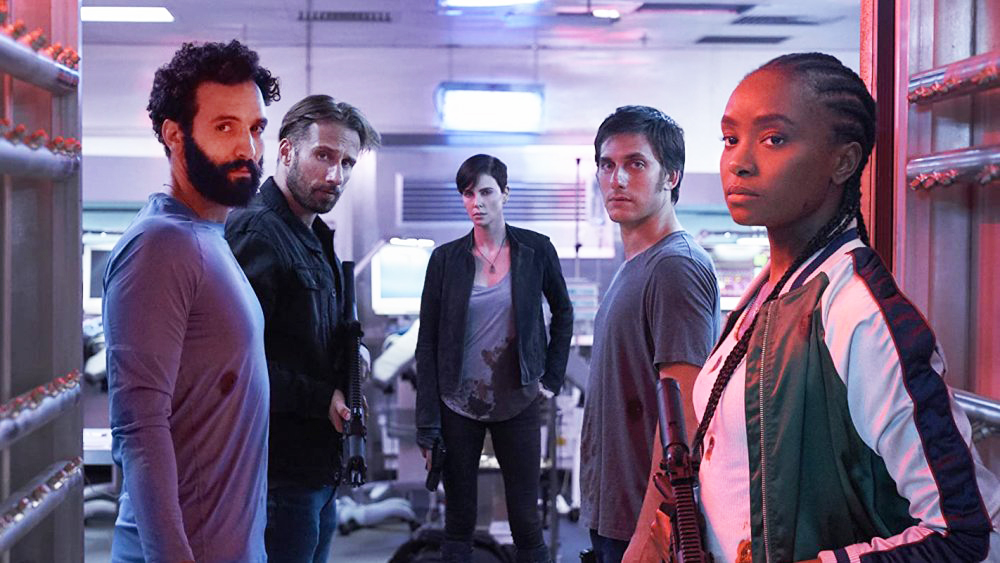
ESQ: Speaking of interesting skills that actors pick up, what are some of the more memorable ones you’ve had to learn for a role?
MK: I really enjoyed learning to ride horses. Being around horses makes you very humble. You instantly grow to have so much respect for the animal. In your first introduction you are quite scared, but a few months later you are not only riding the horse but you are also able to communicate with it.
ESQ: Ethnically, you are Tunisian, but Dutch born and bred. Do you identify as Arab at all?
MK: Definitely. I grew up with two cultures. I love my Tunisian background, and the Arabic culture. I love the specific memories I have of family members and cultural habits and humour—but at the same time I have a very strong connection with The Netherlands. I have always seen it as a very rich marriage that I was able to tap into. I think of my Tunisian childhood as a Chekhovian story! Every time I would go back I would have all these aunts and cousins and neighbours all popping by. I have always seen my ethnicity as a strength and never ever something that held me back.
ESQ: The last big role people will have seen you in was as Jafar in Aladdin. A year on, do you feel it has made a positive impact for ethnic-Arab actors?
MK: We are in a world today where, thanks to platforms like Netflix, we have more access than ever to diverse talent and different cultural storytelling, but quality should always been the most important thing. I have a theatre background, so my heroes tend to be characters rather than the actors. I never viewed Hamlet as someone who needed to be played by someone who was Danish, but rather by the best actor for the role. Diversity is not about rewarding people for being different, but allowing people the same opportunities to learn and develop their craft—and then you allow for the quality shine through.
The Old Guard is available to stream on Netflix.
Esquire now has a newsletter – sign up to get it sent straight to your inbox.
Want up-to-the-minute entertainment news and features? Just hit ‘Like’ on our Esquire Facebook page and ‘Follow’ on our @esquiremiddleeast Instagram and Twitter account.
